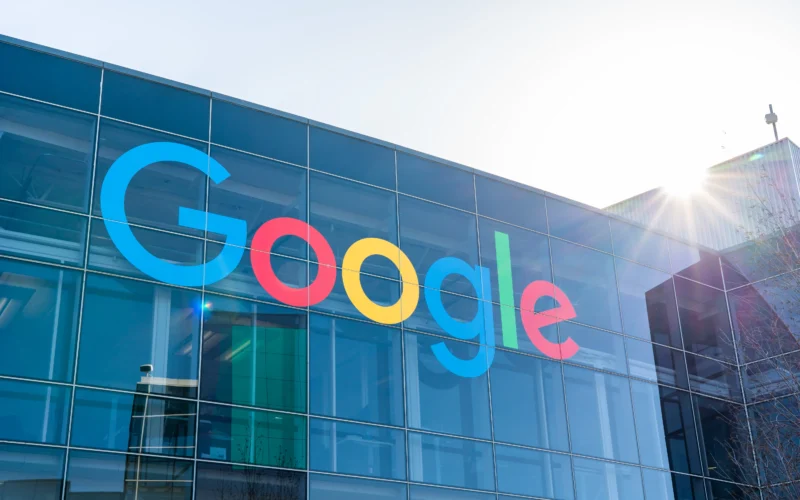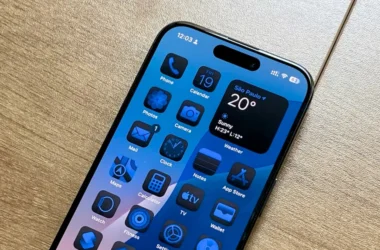Google has officially unveiled an innovative feature that allows users to search the internet by filming a video. This groundbreaking approach aims to revolutionize the way we interact with technology, enabling users to simply point their camera at an object, ask a question about it, and receive tailored search results. With this new capability, Google seeks to make information retrieval more intuitive and accessible than ever before.
Global Access for Users
Starting at 1700 GMT, the new video search feature will be available to Android and iPhone users worldwide. To access it, users need to enable the “AI Overviews” setting in their Google app. However, it’s important to note that the feature will initially support only the English language. This strategic rollout signifies Google’s commitment to improving user experience while also establishing a foothold in the rapidly evolving landscape of AI-driven search technologies.
AI Revolutionizes Online Search
The launch of this feature marks yet another significant step by Google to redefine how we search for information online, leveraging the power of artificial intelligence (AI). This initiative comes just three months after OpenAI, the creator of ChatGPT, announced its own capabilities to allow users to search the internet by querying a chatbot. As the competition heats up, Google’s move to integrate video search underscores its commitment to maintaining leadership in the digital search arena.
Mixed Reception for AI-Generated Results

Earlier this year, Google introduced AI-generated results at the top of specific search queries. While this feature aimed to enhance the relevance of search outcomes, it received mixed feedback from users and industry experts alike. In May, the AI-generated answers came under fire for being erratic and sometimes downright bizarre. One notable example involved the AI suggesting that users could make cheese stick to pizza by using “non-toxic glue,” which sparked widespread criticism and concern over the accuracy of AI-generated content.
In response to the backlash, a Google spokesperson described these incidents as “isolated examples,” assuring users that the company was taking steps to improve the quality of its AI outputs. Since then, there have been noticeable enhancements in the accuracy of results, suggesting that Google is committed to refining its AI technology to meet user expectations.
Enhancing Google Lens Functionality
In addition to launching video search, Google has been actively incorporating AI into its existing services. A prime example is the Google Lens feature, which allows users to ask questions about still images. This capability has significantly boosted the popularity of the Lens feature within Google’s mobile app, attracting a broader user base. By enabling users to ask contextual questions about images, Google Lens has become an indispensable tool for many, further establishing Google’s dominance in the visual search market.
Easier Questioning with Visuals
Liz Reid, Google’s head of search, emphasized that the new video search capability will make it easier for users to ask questions about their surroundings. She provided a relatable example: a visitor at an aquarium might want to know why a group of fish is swimming in unison. Rather than conducting a traditional text-based search—which requires typing out queries and sifting through search results—the new feature allows users to simply point their camera, record a short clip, and ask their question aloud. Google’s AI will then analyze the video, identify the objects within it, and generate relevant search results based on the user’s inquiry.
This innovative approach represents a significant shift in how we interact with technology. By utilizing visuals, users can engage more naturally with the search process, making it an intuitive experience that aligns with how people naturally communicate and inquire about the world around them.
AI’s Expanding Role in Everyday Life
Industry analyst Paolo Pescatore described the introduction of video search as a “big thing” for Google. He highlighted the increasing integration of AI in various sectors, noting that people connect best with visual content. This latest development further demonstrates new ways of bringing content to life, particularly in a realm as fundamental as search, which is one of the most common tasks performed online.
Pescatore also expressed optimism about AI’s potential to become a truly collaborative tool, capable of personalizing user experiences based on individual habits and usage patterns. As AI technology continues to evolve, we stand on the brink of a new era in which our interactions with digital content become increasingly tailored and unique.
Additional Features and Competitors
Alongside the introduction of video search, Google has announced several other updates aimed at enhancing user experience. One such update involves improvements to its shopping results, which will now incorporate reviews and pricing information from various sellers. This enhancement promises to streamline the shopping experience for users, making it easier for them to make informed purchasing decisions.
In another notable development, Google is launching a rival tool to compete with Apple’s music-identifying app, Shazam. This new feature, accessible through a function called Circle to Search on Android devices, will allow users to identify songs playing on a website or a show they’re streaming without needing to leave the app. This capability not only enhances user convenience but also reflects Google’s ongoing commitment to integrating innovative features that cater to diverse user needs.
Facing Growing Competition
As Google continues to roll out these new features, it faces stiff competition in the search market. Currently, Google holds over 90% of the global search share, but emerging players are beginning to challenge its dominance. Notably, OpenAI revealed in July that it was trialing a search feature within ChatGPT, allowing users to ask questions directly to a chatbot. This innovative approach to search is being tested by a limited number of users in the United States.
The competitive landscape is rapidly changing, and OpenAI’s valuation surged to $157 billion following a successful funding round, signaling growing investor confidence in AI-driven technologies. While Google’s new announcements are undoubtedly aimed at reinforcing its position in the market, they also reflect the increasing urgency to innovate in response to rising competition.
In conclusion, Google’s introduction of the video search feature represents a monumental shift in how users can interact with search technology. By leveraging the power of AI and prioritizing user experience, Google is not only enhancing the way we find information but also setting new standards for the future of digital search. As the landscape evolves, it will be fascinating to see how these advancements continue to shape our interactions with technology and the information age at large.





